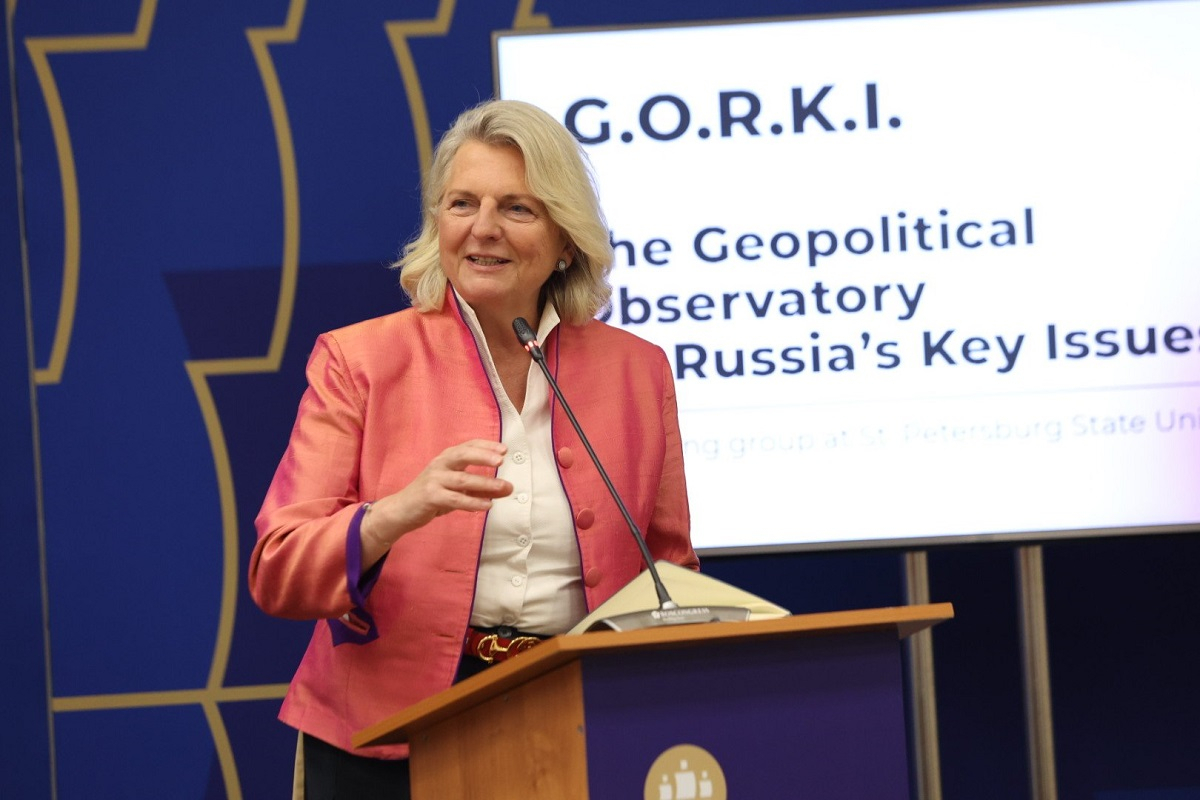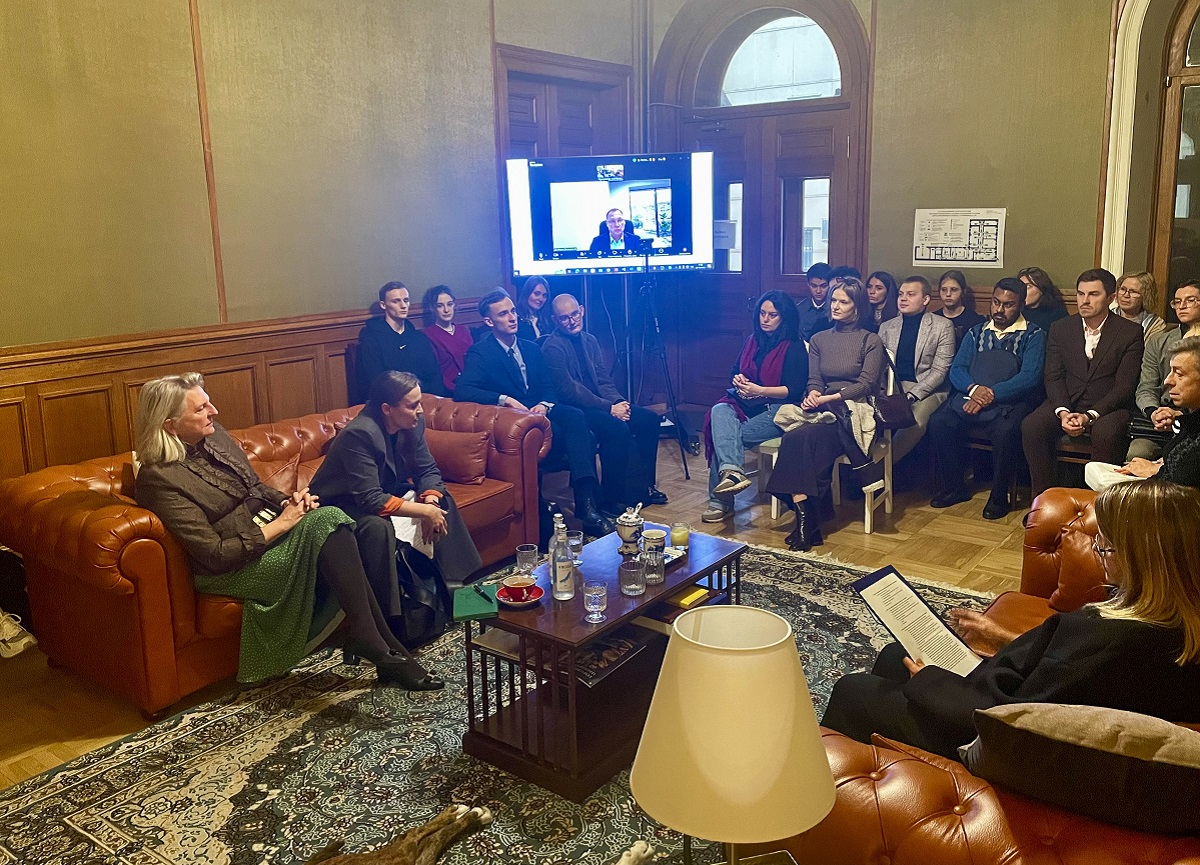Karin Kneissl at St Petersburg University: "The Russian energy market should rely on authoritative Russia’s data sources"

Karin Kneissl, Head of the Geopolitical Observatory for Russia’s Key Issues (G.O.R.K.I. Centre) at St Petersburg University, has discussed the issues relating to collecting statistical data on the today’s Russian energy market at St Petersburg University. The "fireside discussion" brought together Mariia Belova, Research Director of the Consulting Company "Implementa"; Vyacheslav Mishchenko, Head of the Centre for Analysis of Strategies and Technologies for the Development of the Fuel and Energy Complex at Gubkin University; Evgeniia Dyshliuk, an expert in the field of strategic and investment analysis of the fuel and energy complex at Gazprom Neft; and more than 70 University educators and students.
The participants discussed the new realities of the energy market, the structural work of BRICS and problems related to the initial data and hypotheses for modelling in the relevant areas. The priority sources of information for private players in the Russian energy market should be statistical and analytical data obtained from Russian national sources: the Ministry of Energy, the Ministry of Finance, and reports of energy companies containing data on financial and production results, experts agree.
According to Karin Kneissl, Head of the Geopolitical Observatory for Russia’s Key Issues at St Petersburg University, today many participants in energy markets actively use data collected by international consulting companies.

"This choice can be explained by the insufficient volume of data in alternative sources for scientific analysis, because vital decisions in such an important sector cannot be made based on small-scale conclusions. To solve this problem, it is necessary to develop our own digital integrated Russian information and analytical databases that collect information specifically on the energy sector. It is also necessary to open new centres for collecting, analysing and providing reliable information on priority issues of development of the energy sector in Russia," said Karin Kneissl.
The importance of developing an independent ecosystem around energy was outlined by the Minister of Energy of the Russian Federation, Sergei Tsivilev, at the 3rd Eurasian Economic Forum.
The implementation of such projects requires the joint coordinated work of the state, academic and business communities. Development of professional digital platforms for collecting and storing statistical and analytical information, which is vital for the development of the Russia’s economy, will help to form scientifically based forecasts for the development of the energy market in the short and medium term. The need to develop a Russia’s statistical platform containing information on the gas industry was previously expressed by Yury Sentyurin, Ambassador-at-Large of the Ministry of Foreign Affairs of the Russian Federation, Member of the Advisory Board of the G.O.R.K.I. Centre at St Petersburg University.
During the event, Viktor Titov, Vice-Rector of St Petersburg University, whose responsibilities include, among other things, ensuring the activities of the G.O.R.K.I. Centre, proposed combining the efforts of representatives of the business community and the expert potential of the University, which will reduce the risks of energy vulnerability and will contribute to the development of the Russia’s technological sovereignty.
The Geopolitical Observatory for Russia’s Key Issues (G.O.R.K.I. Centre) is an interdisciplinary expert group that brings together leading experts at the University in the fields of economics, law, political science, international relations, Asian and African studies, and sociology. Today, the Centre conducts research and consultations at the request of partners and organises events to discuss current issues in politics and economics in order to develop expert recommendations for decision-making institutions.
"Today, the University also includes the Centre for Econometrics and Business Analytics, which focuses on financial econometrics, machine learning for economic problems, analysis of production potential, and network and art-analytics to name just a few. I am confident that the expert potential of the Centre can contribute to the effective development of the digital platform in the interests of the state. The synergistic effect of the centres operating at the University will have a fruitful impact on solving the tasks set by Russia," said Viktor Titov.

